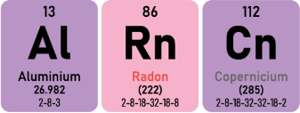Porn Discounts Sex Games Porn Games Juegos XXX Hentai Games PornStar Games 3D Porn Tantaly Sex Doll Cupsland Sextoy Live Cams
Live Sex Free Live Sex Free Sex Games Páginas Porno Rose Toy Free OnlyFans Celebrity Fappening Celebrity Sex Videos TikTok Porn Best OnlyFans
Live Sex Free Live Sex Free Sex Games Páginas Porno Rose Toy Free OnlyFans Celebrity Fappening Celebrity Sex Videos TikTok Porn Best OnlyFans
Published on 2017/09/28
EAGERNESS TO BE WATCHED

We live in a brutal era when it comes to physical and intellectual exhibitionism... Everybody wants to be seen and read... There's a big eagerness for prominence and probably social networks are to blame. I want you to see how pretty I'm, I want you to read my thoughts about this or that...
Musical.ly is an app young people are loving... it's a mix between Snapchat and Vine and it allows you to create and share short videos making fun or with music so you can dance or do playbacks.
Girls from all over the world record themselves dancing trap songs or more commercial, famous songs with the intention of looking sexy and irresistible.
ExtraBall
The queen cobra.
CARIBBEAN PIRATES
The real Caribbean pirates were a whole different breed than the Hollywood kind—though just as savage. They ruled the seas between the 17th and 18th centuries, especially around the Gulf of Mexico, the Antilles, and the northern coast of South America. These guys were rogue sailors, ex-soldiers, or just hustlers who saw piracy as a fast (and seriously dangerous) way to get rich.
They attacked ships loaded with gold, silver, rum, sugar, and anything valuable coming from the American colonies to Europe. Some worked solo, but many were privateers—basically pirates with government permission to rob enemy ships.
Bartholomew "Blackbeard" (Edward Teach) was one of the most feared. He tied smoking fuses into his beard to look even scarier. With smoke pouring from his face, he looked more like a demon from hell than a Disney pirate.
Anne Bonny and Mary Read disguised themselves as men to join pirate crews. They fought like anyone else and didn’t mess around. And Calico Jack became known for his iconic flag (the classic skull with crossed swords) and for sailing alongside Anne and Mary. Spoiler: he ended up hanging by the neck.
The pirate life was brutal. Scurvy, betrayals, brawls, rotten food, and no showers in sight. But there was also a kind of pirate democracy—they voted for their captain, split the loot fairly, and had their own rules, including punishing crew members who stole from each other.
Once they started hitting ships without caring about flags, the major European powers got fed up and hunted them down almost to extinction by the early 18th century.
# View images
ExtraBall by david
Training both body and mind.

ExtraBall2
(Clicking on these links daily you support ALRNCN's work. They're collaborators or sponsors and, by visiting their sites, they like us even more)










AMATEUR FLESH: ALISSA
Look out for the most amateur and erotic side of the porn actress and content creator Alissa Foxy.

# Watch video and photos
ExtraBall
Slam.
ExtraBall2
(Clicking on these links daily you support ALRNCN's work. They're collaborators or sponsors and, by visiting their sites, they like us even more)























RECOMMENDED SITES
 Add your site
Add your site
- mybigtitsbabes
- Motherless
- BoobieBlog
- Babes & Bitches
- celeb-stalker.com
- Erotic Beauties
- drunkenstepfather
- Candid Teens
- Kanoni Net
 Add your site
Add your sitePorn Discount
💩 CrazyShit
🤪 eFukt
NudeChatGirls
👉🍑 Top XXX Pictures
Bingo Porno
Best Porn Blog Sites
Sex Games
Real Amateur Porn
MrPornGeek
CamBB.xxx
ChatSex.xxx
Comepollas
PornScn Free Porno
AI Girlfriend App

















GAS STATIONS WILL BECOME A THING OF THE PAST
It might not happen tomorrow or even next week, but the fate of traditional gas stations seems pretty clear. With the unstoppable rise of electric cars, hydrogen power, and other alternative energy sources, those mandatory pit stops for refueling gasoline might soon become nothing more than a nostalgic memory for future generations.
Think about it—just a few years ago, seeing an electric car on the road was rare, almost futuristic. Now it's unusual if you don't come across one every time you hit the road. And it's not just electric vehicles; hydrogen and other clean technologies are also advancing rapidly, leaving gasoline and diesel firmly in the rearview mirror.
All signs point to gas stations as we know them being on borrowed time. Maybe in a few years, those places will be transformed into charging stations, cafés, convenience stores, or some other business better suited to drivers of the future.

# Watch videos
For Apple users
You might have noticed that when attempting to join our Telegram Channel you get a message that flags our content as sensitive content, which ends up not letting you see anything; this means you have the parental control activated.
This means you have to go to the web version of Telegram https://web.telegram.org and log in, if you are not already. In the settings, in the "Privacy" section, find the option "Sensitive content" and activate "Disable filtiaretro2503ng". As soon as you do, the Settings will automatically sync with the rest of your devices, including the iOS and macOS versions of the App Store.
From there you will be able to enter all the Adult Channels.
ExtraBall
Keep your hands where I can see them.
ExtraBall2
(Clicking on these links daily you support ALRNCN's work. They're collaborators or sponsors and, by visiting their sites, they like us even more)










AMATEUR MEAT: RILEY
Riley is 22 years old, from New Zealand, and wants to be your new girlfriend.

# View photos and videos
ExtraBall
When She Gets on Top
ExtraBall2
(Clicking on these links daily you support ALRNCN's work. They're collaborators or sponsors and, by visiting their sites, they like us even more)










Contact
You can tell us whatever you want via email: [email protected]
If you prefer, you can use this contact form:
If you prefer, you can use this contact form:






FROM FREE HUGS TO FREE SEX
Remember the "Free Hugs" viral thing? That handwritten sign on a piece of cardboard, held by someone standing in the middle of the street, hoping some brave soul would go in for a little spontaneous affection. It became a full-blown phenomenon a couple of decades ago—a simple, feel-good gesture that, at the time, actually felt kind of revolutionary.
It all started with the “Free Hugs” movement back in 2004 in Australia, when a guy named Juan Mann hit the streets with his sign, just looking for a bit of human connection. It didn’t take long for the video to blow up on YouTube and turn into a symbol of hope, empathy, and human closeness—at a time when the world was already getting lost in screens and fast-paced routines.
A lot has changed since then. And while the cardboard + message + spontaneity combo is still around, let’s just say it’s taken a few… interesting turns.

# View Images
ExtraBall by david
Choose your player.
ExtraBall2
(Clicking on these links daily you support ALRNCN's work. They're collaborators or sponsors and, by visiting their sites, they like us even more)










AI IS FINDING YOU A GIRLFRIEND
Matchmakers were women who specialized in arranging marriages, acting as intermediaries between families to find suitable partners. Their role was crucial in many cultures throughout history, especially in societies where arranged marriages prioritized social, economic, and familial compatibility over romantic love.
Across different eras and regions, these women had specific names:
- In medieval and Renaissance Europe, they were known as matchmakers or celestinas, like the character in La Celestina by Fernando de Rojas.
- In China, the "Mei Po" (媒婆) played a key role in arranged marriage traditions.
- In Russia and Eastern Europe, "svakha" were women specialized in finding partners for young people.
- In the Jewish tradition, "shadchanim" were professional matchmakers responsible for arranging marriages within the community.
Now, let’s ask AI to find you a girlfriend—let’s see what it comes up with and if you like any of the options.

# View Images
ExtraBall
Bloopers.
ExtraBall2
(Clicking on these links daily you support ALRNCN's work. They're collaborators or sponsors and, by visiting their sites, they like us even more)




























